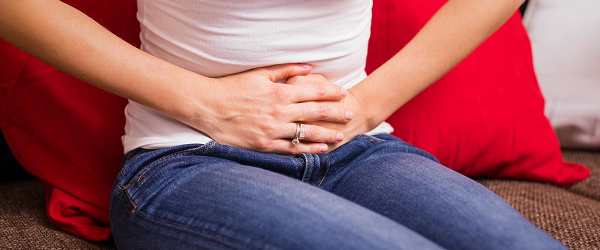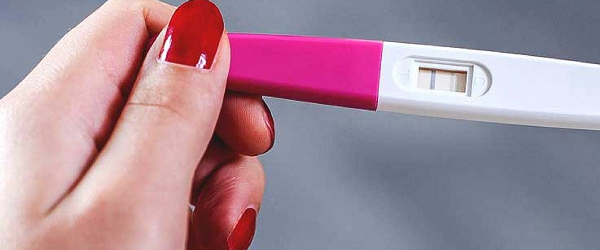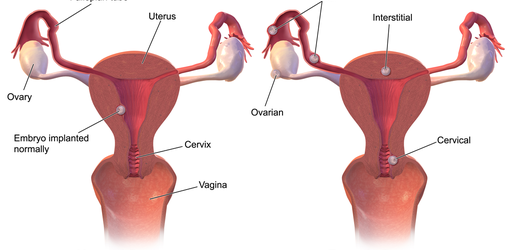What Causes Missed Period White Discharge And Abdominal Pain?

Last updated on July 27th, 2018 at 05:20 pm
Question: What causes missed period white discharge and abdominal pain?
Missed period, white discharge and abdominal cramps in most women may just mean pregnancy. If you’ve not had period for days, weeks or months and feel you’re having cramp-like abdomen pain, it could be an early pregnancy sign.
Chances that you are pregnant is even higher if you’ve had sexual intercourse without the use of protection or pills.
However, while trying to observe for any pregnancy sign, ectopic pregnancy, chronic body stress and very severe weight loss may cause period delay and cramps.
Causes of missed period white discharge and abdominal pain
1. Normal pregnancy
If you’ve had unnecessary exposure without protection during intercourse, you could experience white discharge after missing your period with cramps.
This is an early sign you could be pregnant and may occur with or without any light spotting. Light spotting and cramps may occur before period, if pregnant, and it’s due to implantation.
After Fertilization – the union of ova and sperm, the embryo is embedded into the endometrium. Most women may not have signs of implantation — brown discharge and cramps; However, light spotting and mild cramps are very early pregnancy symptoms.
Possible signs you’re pregnant are
——Missed period
If you get pregnant, your period will stop coming. This occurs because pregnancy hormones increase and prevent ovulation.
Though it’s possible to have to spot during pregnancy, either due to implantation or a miscarriage, you cannot have period while pregnant.
——Increased white discharge
While getting close to your next period, you may or may not have discharge. No discharge before period occurs due to rupture and breakdown of corpus luteum formed after ovulation with an increase in progesterone hormone.
About four days before period starts, the vagina becomes dry, or sometimes you may experience thick cervical mucus.
However, if pregnant, you will experience increased vaginal discharge before next period or after missing your period.
——Abdominal cramps or pain
Abdominal pain, either before or after a period, is due to changes during early pregnancy.
Mild abdominal pain that occurs a few days before period is a sign you are pregnant and happens because of implantation. After a missed period, cramping pain occurs because of increased blood flow to the uterus.
READ MORE: 7 Main causes of cramps before period
——Other possible symptoms that may indicate pregnancy are
- Breast changes – If pregnant, breast changes can occur very early. After ovulation, it’s normal for your breast to increase in size. During pregnancy, you may also experience breast swelling, soreness, and pains.
- Food craving or aversion
- Frequent urination
- Activity changes
- Mood changes
What to do?
The first step is to confirm pregnancy. First response test kit can detect if you’re pregnant.
While it may test negative if it’s done early or if your pregnancy hormones (HCG) is low, a repeat of gestation test may be necessary if you test negative and still feel pregnant.
If you’re pregnant, you should inform your doctor.
2. Ectopic pregnancy
Ectopic pregnancy can result in a missed period and very severe pains in your abdomen.
So, what’s an ectopic pregnancy?
You already know that during pregnancy your baby grows inside the uterus or womb. This occurs because the fertilized ovum (your baby) is transported back through the Fallopian tubes to the uterus.
Sometimes, due to a malfunctioned tube or pelvic inflammatory disease, your baby may get stuck inside the Fallopian tube and start growing there.
The Fallopian tube will rupture as the baby grows resulting in severe abdominal pain and feeling dizzy.
There are many reasons you may have an ectopic pregnancy. Chances are high if you’ve had
- Previous infection that you left untreated. Chlamydia, gonorrhea, trichomoniasis and bacterial vaginosis infections can cause an upward spread and damage the Fallopian tubes. If Fallopian tubes get damaged, it is difficult for the embryo to be moved back to the uterus.
- Previous surgery of one or both of the Fallopian tubes may result in increased chances of having an ectopic pregnancy
- Previous ectopic, then it can occur again. The chances are higher if a previously damaged tube was not removed or properly repaired.
Other risk factors may include:
- Age more than 35 years
- Taking fertility medications like clomiphene citrate
- Infertility
- Previous history of an abortion
What can I do?
The first sign of an ectopic pregnancy may be pain on one side of your abdomen. It may get worse as the fetus grows and cause bleeding into the abdomen. Feeling dizzy and very weak may need urgent medical attention.
Most times, a laparoscope is used for diagnosis and treatment. However, your doctor may opt for open surgery depending on availability of equipment or expertise
3. Delayed Ovulation
Once in a while, you will notice your signs of ovulation does not occur when expected. This is not uncommon and can happen due to any of these reasons
- Having a long journey
- Changing your environment
- Having stressful work days or school hours
- Severe workout with so much weight loss
- Eating problems
- Sleepless nights
- Medical conditions like polycystic ovarian syndrome
If ovulation occurs at a later time, your period will eventually be delayed. Some women do complain of cramping abdominal pain that occurs during ovulation.
Possible signs of ovulation are:
- Watery discharge that is whitish, stretchy, non-smelling
- Pain in your abdomen for a few hours or days
- Increased sexual desire
- Change in smell and taste
- High soft cervix in your vagina
4. Vaginal infections with complications
Pelvic inflammatory disease is a well-known complication of an untreated vaginal infection that spreads to various part of the body including your fallopian tubes. In some women, if not treated with antibiotics very early, may destroy the fallopian tubes resulting in infertility.
Very rarely, some women may experience long-term pelvic pain and abscess.
Symptoms of a complicated vaginal infection are
- Back pain
- Vaginal itching
- Abnormal or smelly fluid from the vagina
- Low abdomen pain that may get worse during your periods
- Fever
- Painful urination
The most common diseases that may cause PID are Chlamydia and Gonorrhea. If you had unsafe intercourse with your partner and now have these symptoms, you should inform your doctor.
In most cases, PID can be treated with oral medications.
Still worried why you have cramps after missing your period? Let us know.
